Book Review: The Little Wartime Library by Kate Thompson
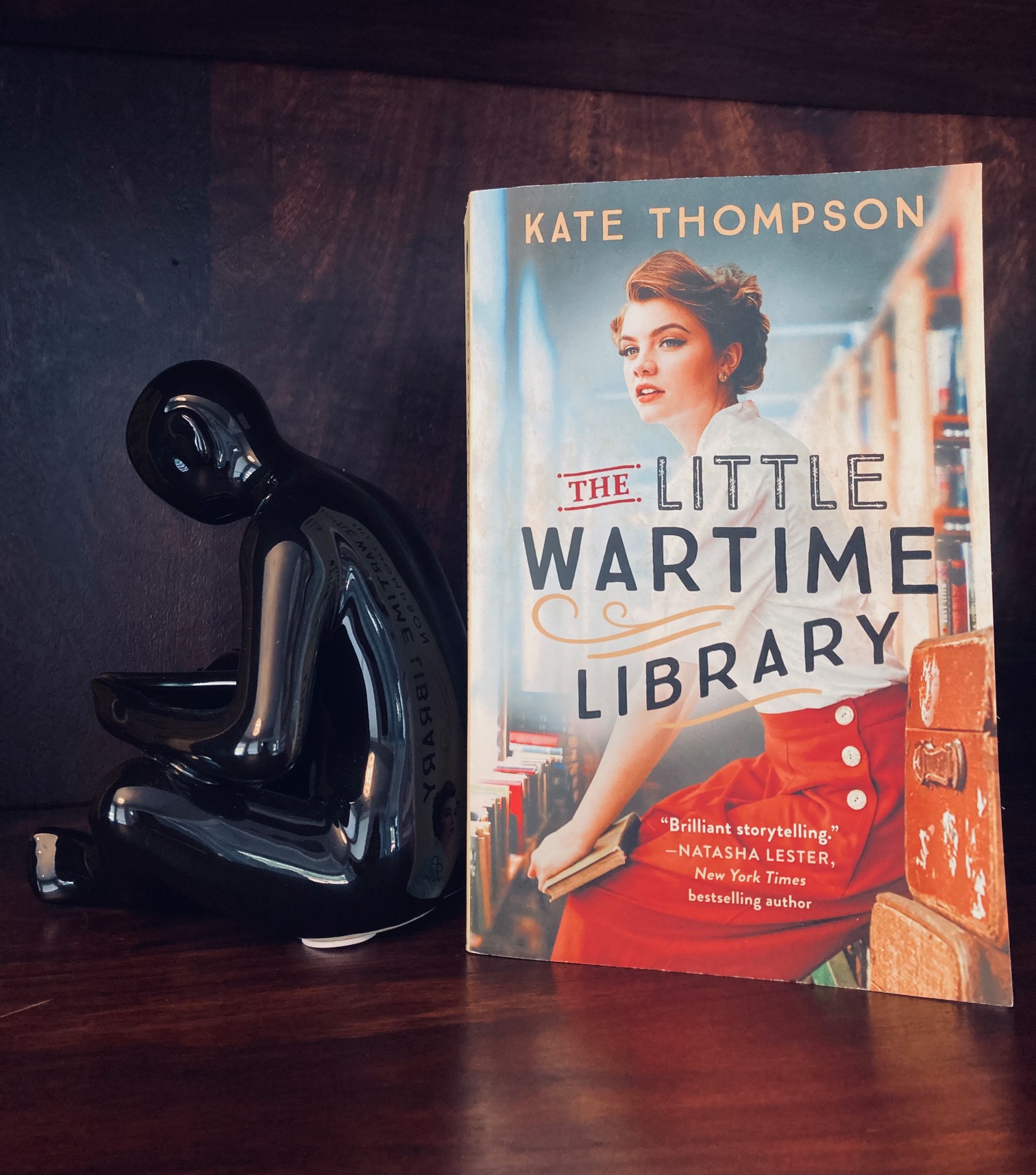
Continuing on my recent ‘books about books’ kick, I picked up this thick paperback called The Little Wartime Library by Kate Thompson, which promised a snapping good story. It delivered; on both the good story, and the warm and fuzzy feeling when reading about the power of books and their ability to improve one’s outlook on life. It’s based on real-life details, but takes many fictional liberties. There is a significant section of endnotes by the author that details why she wrote the book, the places and locations she researched, some of the real-life people her characters were based on, and why she felt so strongly about telling this story. Many works of historical fiction these days are based on a little-known fact mined from research, but this author takes this to the next level by offering so much valuable context.
Plot Summary
It’s 1944 in London, England. The German bombs continue to fall randomly and without warning. For hundreds of people, instead of just hiding underground when the sirens go, they have permanently moved into a community in an abandoned subway station because their homes have been lost entirely. There are bunk beds, a doctors clinic, a library, a daycare, a café, a hairdresser, even a small theatre. The narrative is told from two perspectives: Clara and Ruby; two young librarians who work underground, risking their reputations to ensure people who want to read light and fluffy fiction are able to, regardless of what the snooty chair of the library committee thinks is appropriate. Clara is a young war widow who devotes her time to books, ensuring everyone around her has something good to read. She’s also helping some children learn to read, in addition to holding an evening story time for all children and youth every single day. In contrast, Ruby likes to party, relying on drinking to erase the memories of her older sister’s tragic death and dulling the pain with romantic entanglements with soldiers as they come in and out of the city. Their day-to-day lives are both monotonous and terrifying, the threat of bombs always present. As they navigate the changing expectations of society that the war brought on, the library remains the safe and inclusive space that Londoners have come to rely on.
My Thoughts
The pace of the narrative is what you would expect from a commercial paperback meant to entertain. There are familial and personal dramas that are slowly uncovered as the book and war progress, but lots of room for small windows of joy. There is an ever-looming threat of danger, and the shut down of the library due to the threats of the stick-in-the-mud committee chair, but these elements work well together to keep everything moving, rather than fighting for the reader’s attention. Ruby’s antics balance out Clara’s seriousness, but both are colorfully portrayed rather than one-dimensional.
The novel is a love letter to librarians and the libraries they so carefully maintain. The author’s endnotes include her thoughts on why libraries are so important to her personally, and snatches of interviews she held with modern-day librarians, as well as those who could speak to their role during WWII. As we know, librarians aren’t only the keepers of books. Nowadays especially, they play a much larger role in our society as the hosts of one of the few free spots left and accessible to everybody:
“A librarian is often the only person someone might talk to all day…They are part counsellor, social worker, listening ear, facilitator and friend. If you consider that a library is a microcosm of society, then you should probably add ‘humanitarian’ to that description. They regularly go above and beyond.”
-p.425 of The Little Wartime Library by Kate Thompson
What I love most about this book is it’s ability to illuminate a specific point in time in such an entertaining way. There is no shortage of books about the second world war, in fact, I’ve read other fictional books about special libraries in WWII, and no doubt there are others being written, so this certainly won’t be the last time I review a book with similar themes. But despite the crowded genre, it’s incredible how many elements of that time I was unaware of until I read it in this book. At one point Ruby and Clara visit an island off the mainland just after the war has ended, and they witness a woman screaming obscenities at another, condemning her for her bad behaviour. They learn that there have been no punishments for those who informed on their neighbors to the Nazis who previously occupied that town, and instead, it was decided that those informants would simply be left to the condemnation and bullying of their neighbors. Alongside Ruby and Clara I was shocked to learn this, and it’s one of the most powerfully emotional scenes in the book. Even though all the characters endured the war in one way or another in this novel, Thompson makes a concerted effort to show the vast array of experiences that people had, which is not only engaging to read about, but incredibly helpful when painting a picture of that time to modern-day readers.

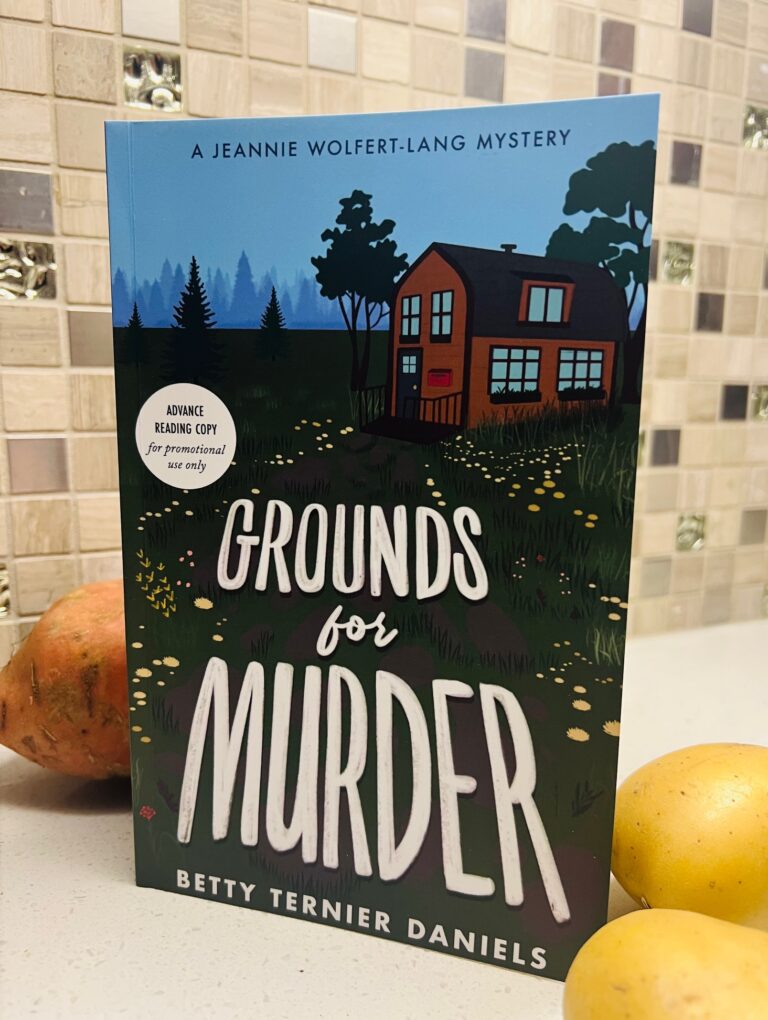
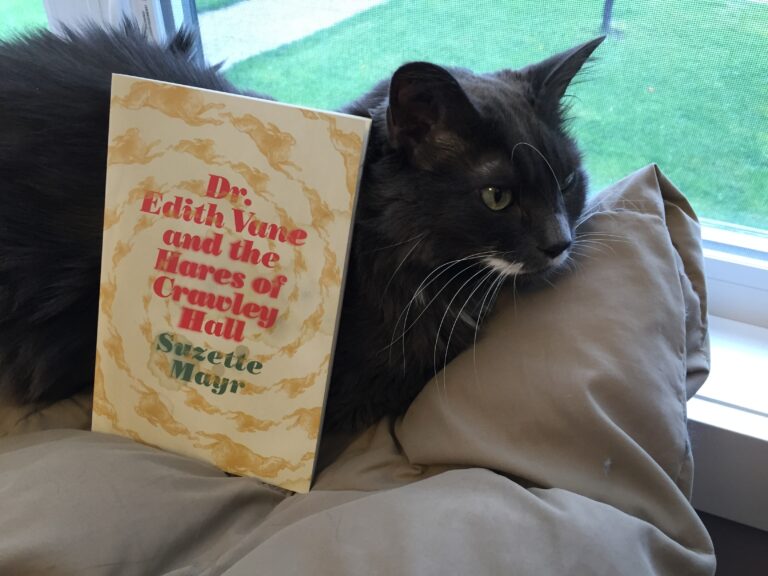
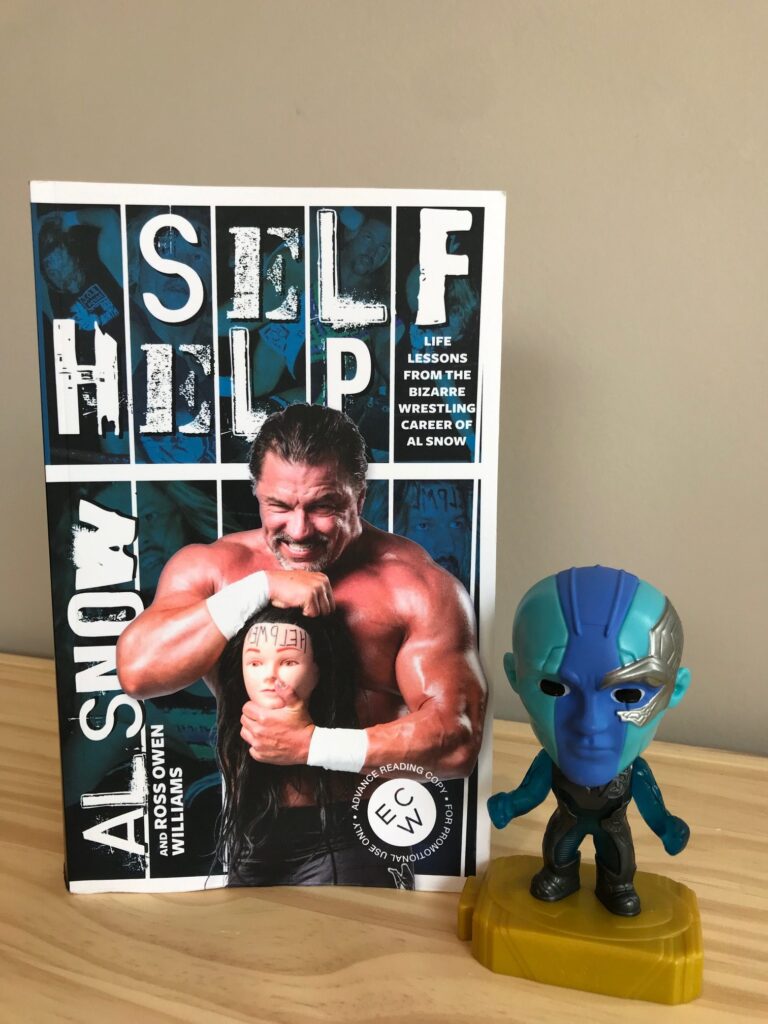
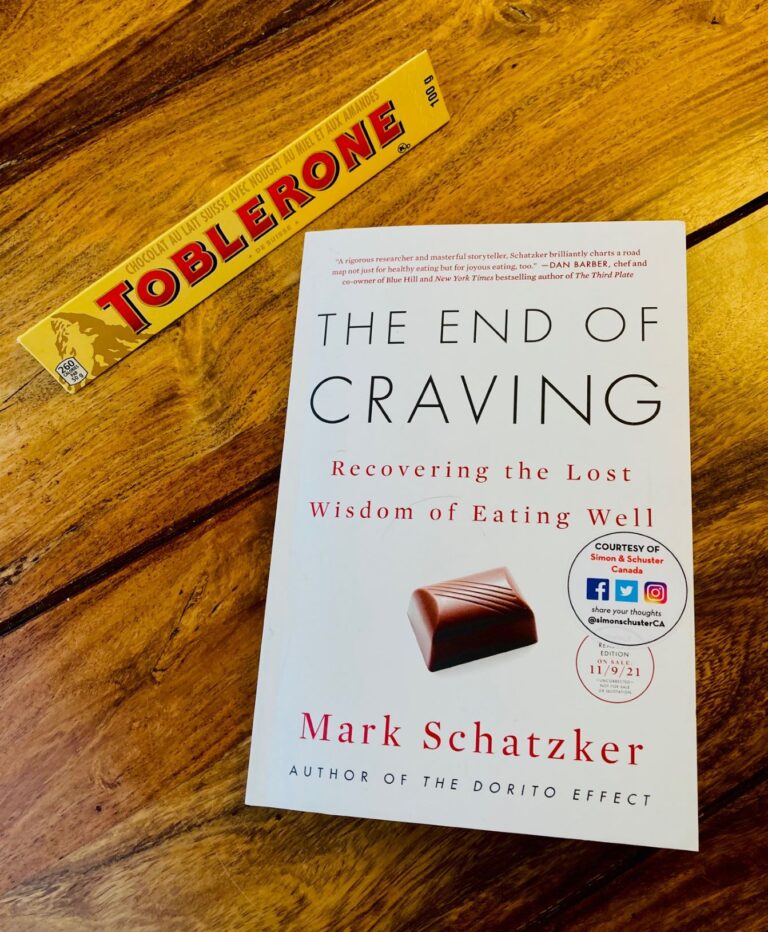
Why DID she feel so strongly about telling this story, especially if other writers have covered WWII librarians?
Well this gal really loves libraries. Also the angle of certain books being considered fluff and off limits was an interesting part of history I hadn’t come across before. However that being said, I’m not a die-hard historical fiction fan, so maybe other were already aware of that?
Ohhhhh, yeah. Historical fiction isn’t really my jam either.
This sounds great! I’ve seen it at the library and I might pick it up.
I think you’d enjoy it Laila, especially being a librarian yourself, you will probably strongly connect with it
It’s odd how fixated authors seem to be on WW2, and on London especially. It’s almost begun to feel like a mythical legend, like the Ancient Greek gods or something now.
agreed FF. I wonder if its publishers who are fixated it now, they seem to publishing lots of WWII stuff right now
The book needs better editing. There are mistakes. The most annoying thing is the language, modern expressions which weren’t in use at the time are littered through the book. At one point Ruby tells someone to F off. This wasn’t language used at this time or place. Neither was sh**. The end piece is slow and repetitive and not really worth reading. It contains a glowing reference to the ability of the English to improvise as if the other 3 nations of the UK are not able in this respect.
I never noticed the use of modern-day slang in this book, but that’s a good point. It didn’t detract from my enjoyment of the novel overall.